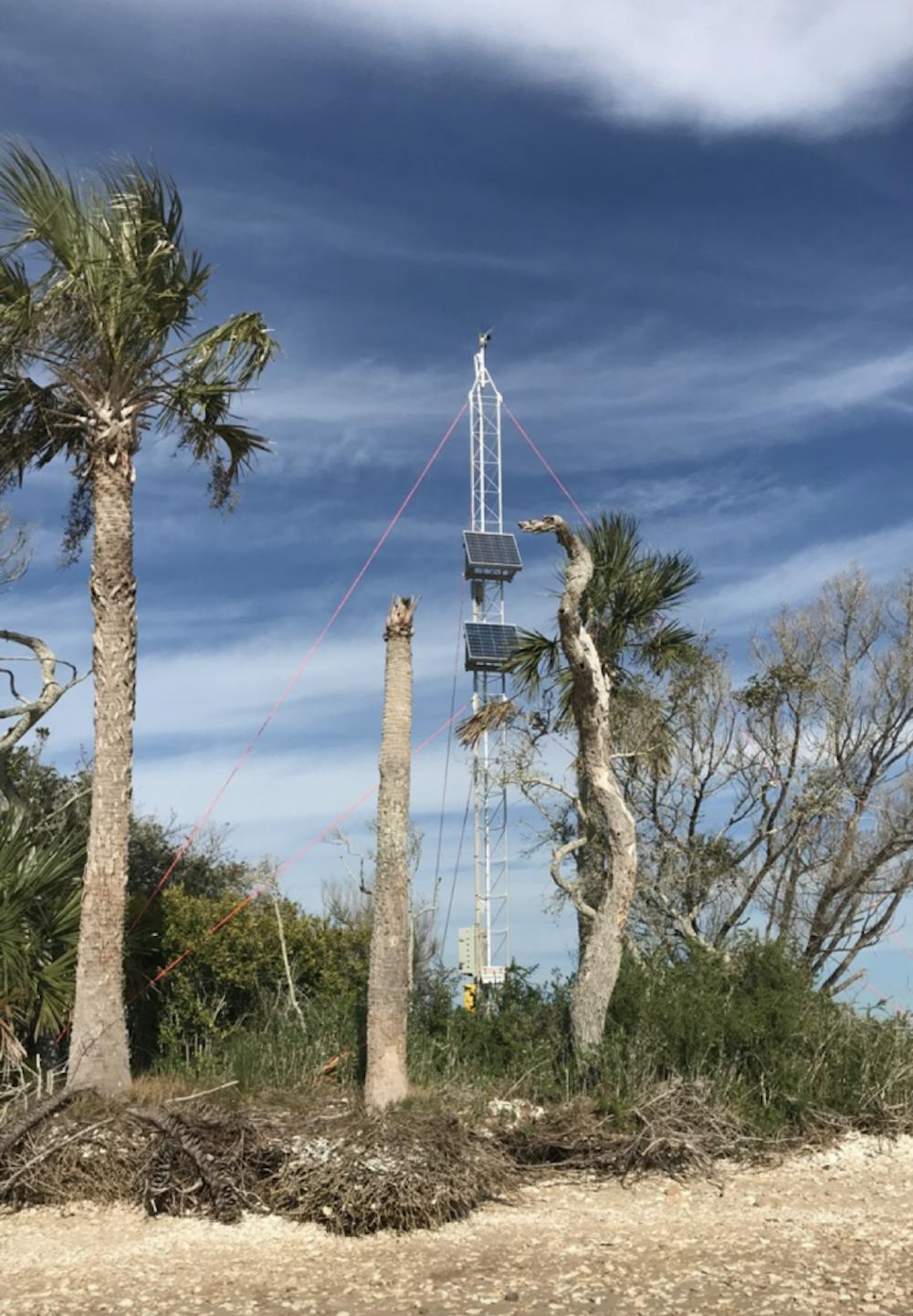Drones stretch out across the coast collecting water samples. Sensors attach to bridges; piers and buoys monitor sea activity. Computers collect data and make environmental predictions.
This is iCoast.
Todd Osborne, a UF biogeochemistry assistant professor, said iCoast is all about transferring information. Sensors attached to various platforms along the coast collect data to detect if environmental problems are on the horizon.
“Knowing certain conditions are arising that would promote, say, a red tide, maybe there is something we can do about it at that point prior to that becoming a real big problem,” Osborne said.
Red tide and other harmful algae blooms produce toxins that may lead to illnesses in humans and fish, but Osborne said the iCoast program may catch signs early enough to be proactive and control any issues. Warnings can then be passed along to fishers, beach tourists and other people possibly affected.
For six months, a team of 20 UF faculty members and students worked to develop methods of predicting environmental changes, Osborne said. The program received $750,000 from the Office of the Provost as part of a 2018 initiative that granted $17 million to research aimed at solving society’s most pressing issues.
“We start with this thought process that we have such amazing tools out there — we can put people on the moon — but, for some reason, we are unable to predict the environmental disasters that keep plaguing the state of Florida,” Osborne said.
The technology is a mixture of different instruments and multiple sensors, such as computer models, drones or tags attached to an organism. Sensors can measure routine water qualities like temperature, pH and salinity, Osborne said. Some sensors measure nutrients and certain bacteria like E. coli, while others scan tagged fish swimming past — all with the purpose of tracking bacteria or emerging contaminants.
While the team is monitoring the environment closely for problems, it is also noting standard conditions in order to make computer models that simulate conditions such as water flow and bacteria growth in certain temperatures of water. Future information can be put into the models to make predictions, Osborne said.
UF’s Whitney Laboratory for Marine Bioscience in St. Augustine is conducting a pilot study with the prototypes. The goal is to expand iCoast along all the coasts of Florida, Osborne said. Once sensors are in place, the team hopes to be able to detect issues days in advance.
“We are hoping by the end of [2019] that we’ve got a steady data stream coming in, and the computer model will be cranking away, utilizing that data stream to make predictions about the environmental changes we are going to see,” Osborne said.
The team has also been working with the Coast Guard and the U.S. Army Corps of Engineers to utilize some of their existing waterway structures, Osborne said.
David Kaplan, a UF environmental engineering associate professor, said he was attracted to iCoast and the idea of using technology to prevent environmental disasters and maintain the health of Florida’s ecosystems.
“The idea includes both using technology we already have but doing it in a much more widespread way and also developing new technologies that don’t exist today in order to do a better job of monitoring the health of the coastline,” Kaplan said.
One of the prototypes in development is an aerial drone with a scooping mechanism to get water samples. Kaplan is planning to have the drone ready to go out and take samples by fall.
“It’s really compelling to think of this science-fiction future where this swarm of UF iCoast drones goes out,” Kaplan said.
The iCoast team uses video-based monitoring of the Intracoastal Waterway to detect marine mammals and boat traffic.






